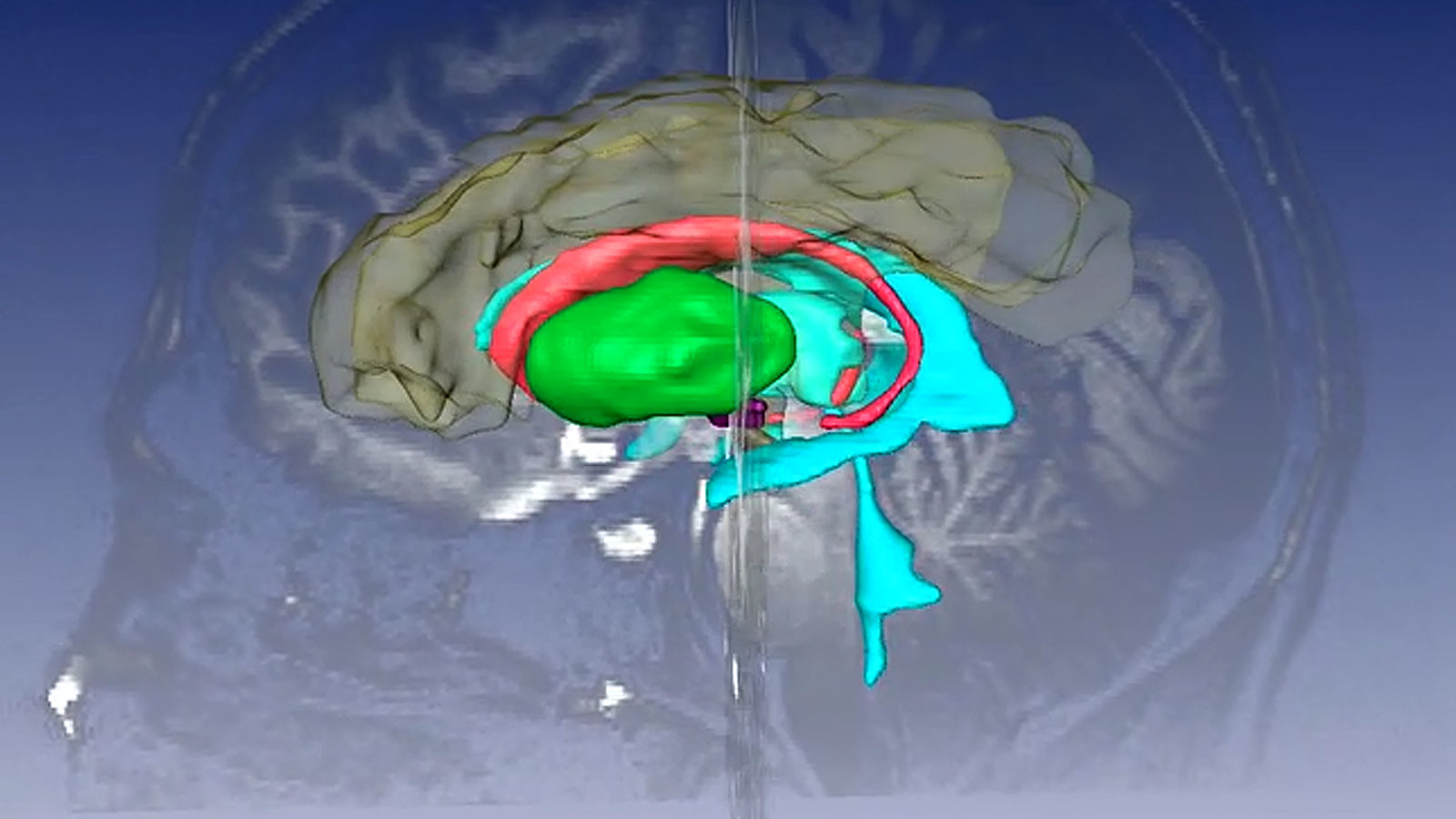Understanding Brain Hiccups
Project start for German-Israeli-American cooperation project for the investigation of the origins of Tourette’s
-

3D image of the regions in the human brain which will be analysed in the project. Graphic: University of British Columbia (www.neuroanatomy.ca)
Since May 1, 2018, the Federal Ministry of Education and Research (BMBF) is providing funding for the "Neuronal Simulation Models of Basal Ganglia Dysfunction in Tourette's Syndrome" project. In addition to Chemnitz University of Technology, the project partners include Bar Ilan University (Israel) and the University of Pittsburgh (USA). The project is coordinated by Prof. Dr. Fred Hamker, Professor of Artificial Intelligence at Chemnitz University of Technology. The three-year project aims to conduct more detailed research into the development of the tics characteristic of the disease.
Hamker's research group is developing simulation models for this project, which depict the behaviour of neuronal networks. The focus lies on the basal ganglia, which are located below the cerebral cortex and play an important role in motor control. While models of healthy basal ganglia and with Parkinson's disease have already been developed in extensive preliminary work, the focus is now on the suspected changes in the basal ganglia that lead to the development of tics.
In addition, the Israeli project partners are conducting experimental studies on rats in which physiological data on brain activity during tic-like conditions are collected. Based on this data, existing simulation models can be tested and further improved. The project is complemented by the expertise of the American project partner in the simulation of nerve cells on a smaller, biophysically detailed scale.
The results of this basic research can generate ideas for new therapeutic approaches for patients with Tourette’s.
Tourette Syndrome Background
Tourette syndrome, or simply Tourette’s, is a neuro-psychiatric disease defined by the occurrence of so-called tics. Tics are sudden, fast and recurring non-rhythmic movements or sound expressions. The development of tics is associated with specific abnormalities of brain activity. Basal ganglia in particular believed to play a role in the development of tics. The underlying mechanisms are still largely unexplored.
(Translation: Sarah Wilson)
Matthias Fejes
15.06.2018




